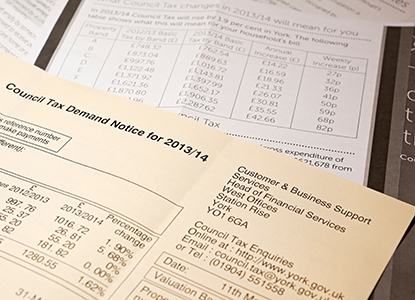By Richard Johnstone | 11 March 2014
Local council tax support schemes introduced following the government’s welfare reforms have reduced work incentives in some part of the country, the Public Accounts Committee has found.

Analysing the local council tax support schemes set up after the funding was devolved to town halls, MPs said that, in 19 authority areas, the amount lost in benefits as people return to work was greater than the taper under the old scheme.
From last April, councils have had to set up their own eligibility criteria for council tax support after the funding was cut by 10%. They were also required to protect provision for pensioners, meaning the impact of the reductions has fallen on the working age population.
PAC chair Margaret Hodge said the reform was intended to increase incentives to get a job as part of the coalition’s benefit reforms.
‘But we found in 19 local authority areas, up to 225,000 people could lose more of their earnings – as a result of income tax and national insurance contributions combined with the withdrawal of Council Tax Benefit and Housing Benefit – than under the previous national scheme.
‘This just goes to show, for some, work simply doesn’t pay under the new scheme. For them, work incentives have actually weakened rather than strengthened – the opposite of what the government intended. Some of those 225,000 people stand to lose 97p for every extra £1 earned – a fundamentally perverse result.’
The committee concluded that although authorities differed in how much of the funding reduction they passed to claimants, many had cut entitlements and had not made the savings hoped for by ministers.
‘Around 230 local authorities introduced schemes which required claimants to pay minimum council tax payments,’ Hodge said.
‘Of these, 133 local authorities offered no protection to vulnerable groups, other than pensioners and war pensioners.’
Ahead of the end of a transition grant that supported the new schemes in their first financial year, MPs said the Department for Communities and Local Government should produce guidelines on the extent of local discretions and obligations. The department should also outline how it will respond when it considers whether local schemes have jeopardised welfare reform objectives or incentives to work.
MPs reiterated the National Audit Office's call for the department to improve its understanding of the impact of benefit cuts when introduced alongside other funding reductions, such as cuts in town hall spending.
Responding to the report, local government minister Brandon Lewis highlighted that spending on Council Tax Benefit doubled under the last government. ‘That's why, as part of our long-term economic plan, we are fixing the welfare system to make work pay and reducing the deficit to safeguard our economy for the long term,’ he added.
‘Our council tax policies are working. Localised council tax support has also given councils stronger incentives to support local firms, cut fraud, promote local enterprise, get people into work and end the 'something for nothing' culture.’
Sharon Taylor, chair of the Local Government Association's finance panel, said the £414m funding reduction when Council Tax Benefit was localised had hit the local schemes.
‘The shortfall between the money councils receive to fund council tax support and the money we would need to protect those on low incomes is getting bigger and is likely to reach £1bn by 2016. At the same time, councils are tackling the biggest cuts in living memory and cannot afford to make up the difference.’
The 19 local authorities with weakened work incentives identified by MPs are:
Blaby
Bracknell Forest
Brent
Broxbourne
Chesterfield
Crawley
Doncaster
Harrow
Lambeth
North Kesteven
Portsmouth
Rochdale
Salford
Sandwell
Southampton
Sutton
Trafford
Windsor and Maidenhead
Wokingham




















